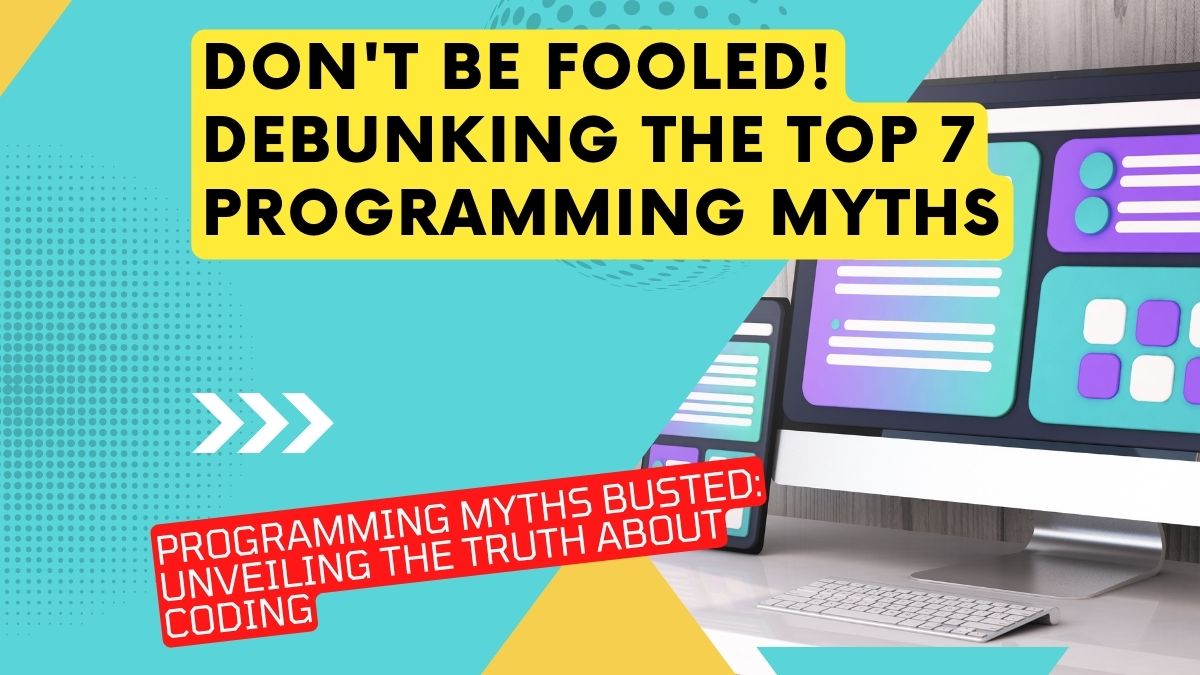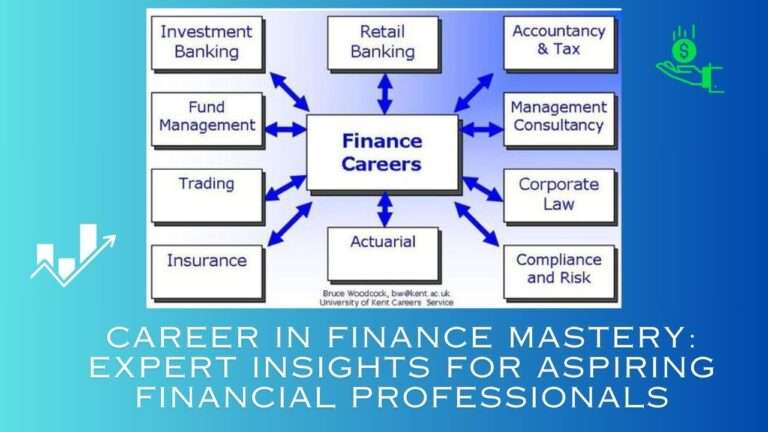Don’t Be Fooled! Debunking the Top 7 Programming Myths
Top 7 Programming Myths Busted: Unveiling the Truth About Coding
Dispelling the Fog Around Programming Myths
Hey there, fellow code wranglers and digital wizards! Ever felt like you’re in the middle of a foggy forest when it comes to programming myths? Trust me, I’ve been there too, stumbling around, wondering if coding is just reserved for those who can speak in binary and summon algorithms like magic spells.
But fear not, because today, we’re grabbing our myth-busting machetes and embarking on an epic journey through the dense jungle of misconceptions. Imagine me with a safari hat, a determined glint in my eyes, and a keyboard slung over my shoulder like a true adventurer.
“Dispelling the Fog Around Programming Myths”
Alright, brace yourself for this wild ride. Have you ever heard that coding is like deciphering ancient scrolls reserved for geniuses? Oh, please! Coding isn’t a secret club for the Einsteins of the world. It’s more like joining a friendly tribe of problem solvers who speak the language of logic.
Now, here’s a zinger: “You must start coding while you’re still teething!” Seriously? I couldn’t even tie my shoes properly back then! Age is just a number, and so is your coding debut. Whether you’re 18 or 80, coding is a playground open to all ages. So, if anyone tries to tell you that you missed the coding boat, tell ’em you’ve got your own ship!
Programming myths have been circulating for years, clouding the perceptions of aspiring coders. In this article, we’ll debunk the top 7 programming myths that have been holding you back. Let’s clear the air and unveil the truth behind these misconceptions.
- Myth 1: Coding is Only for Geniuses
- Myth 2: You Must Start Young to Become a Programmer
- Myth 3: All Coders Need a Computer Science Degree
- Myth 4: You Can Switch Between Programming Languages
- Myth 5: Debugging Means You’re a Bad Programmer
- Myth 6: More Code Equals Better Software
- Myth 7: Copy-Pasting Code is the Quickest Solution
Myth 1: Coding is Only for Geniuses
Contrary to popular belief, coding is not reserved for geniuses. Anyone with dedication, a willingness to learn, and consistent practice can become a proficient programmer. It’s about passion and persistence, not innate genius.
You won’t believe the number of times I’ve heard people whisper, “Coding is only for geniuses, you know.” It’s like they believe programmers are descendants of Albert Einstein and Da Vinci’s secret love child. Well, newsflash, folks: I’m here to tell you that you don’t need an IQ higher than a giraffe’s neck to code!
Picture this: I, the ordinary mortal with a keyboard and caffeine addiction, decided to give coding a shot. I mean, if geniuses could do it, why not me, right? So there I was, staring at my screen, feeling more lost than a penguin in the desert.
But guess what? The “genius” secret to coding isn’t a secret at all. It’s all about dedication, just like the dedication I put into hunting down the last piece of chocolate in my pantry. I started small, tinkering with basic code and trying not to freak out when errors popped up like unexpected guests at a party.
And let’s talk about our willingness to learn. If I can learn to cook without burning down the kitchen (most of the time), I can definitely learn to code. I embraced online tutorials like they were the cheat codes of a video game. Slowly but surely, the jumbled letters on my screen started making sense. It was like deciphering a secret code, and I was the codebreaker!
Consistent practice? Oh, I nailed that. Just like how my pet cactus doesn’t require daily watering but still thrives, coding skills need consistent attention. I made it a habit to spend a little time each day coding, just like I would binge-watch my favorite shows. And trust me, seeing my progress was more satisfying than finishing an entire pizza by myself.
So, my dear non-genius comrades, don’t let anyone tell you that coding is only for the Einsteins of the world. You, too, can unravel the mysteries of programming with dedication, a willingness to learn, and some good old-fashioned persistence. And who knows? Maybe one day you’ll create a program that helps me find my missing socks. Now that’s a real genius move! 🧦💻
Myth 2: You Must Start Young to Become a Programmer
Age is irrelevant in the coding world. Whether you’re a teenager or in your golden years, you can start learning to code at any time. The key is a genuine interest and a commitment to learning.
Level Up Your Brainpower: Learn Programming and Open New Horizons
Myth 3: All Coders Need a Computer Science Degree
A computer science degree is valuable, but not mandatory. Many successful programmers have diverse educational backgrounds or are self-taught. What matters most is your skill, problem-solving abilities, and practical experience.
Myth 4: You Can Switch Between Programming Languages
Every programming language has advantages and disadvantages that determine which jobs it is best suited for. Rather of assuming all languages are equal, select the one that best fits the needs of your project.
Cowboy, hold your horses! Let us address the curious misconception that programming languages are similar to dress-up dolls, in that you can change their clothes and they will function normally. I’m sorry to break your bubble, but programming languages are more akin to a spread of cuisines at a buffet; after all, you wouldn’t bring sushi to a pizza party.
Imagine thus that I am the fearless explorer of code, waiting at the door to the Programming Language Wonderland. I enter and am met with several different languages, each with its own distinct personality.
So, picture me, the brave coding explorer, standing at the entrance of the Programming Language Wonderland. As I step inside, I’m greeted by a multitude of languages, each with its own personality. It’s like a social gathering, and every language is dressed to impress, ready to dance to its own tune.
For instance, take Python, the friendly chatterbox of the group. It’s great at data analysis and playing with algorithms, but if you ask it to build a video game, it might just give you a puzzled look, like a penguin in a desert safari.
Then there’s JavaScript, the life of the party. It can make web pages come alive with fancy animations and interactive features. But ask it to handle complex calculations, and it might stumble like a giraffe trying to limbo.
And let’s not forget C++, the cool and composed rockstar. It’s the language of choice for building powerful software and games, but asking it to quickly whip up a simple web page is like asking a rocket scientist to bake a cake – not its forte.
See, each language is like a superhero with its own superpowers. You wouldn’t ask Superman to spin a spider web, right? Similarly, you wouldn’t ask a language designed for data manipulation to build a 3D game from scratch. It’s like trying to fit a giraffe into a phone booth—impossible and, frankly, quite impossible.
The trick is to choose the right language for the job, just like picking the right tool from a toolbox. Need to build a snazzy website? JavaScript is your hero. Calculating the trajectory of a rocket? Hello, Python! It’s all about finding the perfect dance partner for the coding salsa.
So, my coding compadres, next time you hear that programming languages are interchangeable, remind them that it’s like expecting a cat and a dog to have a meaningful conversation. Embrace the diversity of languages, know their strengths, and choose wisely based on your project’s needs. Happy coding, and may the language force be with you! 🚀🕺
Myth 5: Debugging Means You’re a Bad Programmer
Debugging is a natural part of programming, not an indicator of incompetence. Skilled programmers embrace debugging as an opportunity to refine their code and enhance their skills.
Myth 6: More Code Equals Better Software
The quality of code matters more than its quantity. Writing concise, well-structured code is the hallmark of a skilled programmer. Focusing on efficiency and readability leads to better software.
Myth 7: Copy-Pasting Code is the Quickest Solution
While copying and pasting code can provide shortcuts, it’s crucial to understand the code you’re using. Blindly copying code without comprehension can lead to errors and security vulnerabilities. Strive for a balance between efficiency and understanding.
Why Should You Learn How to Code ?
Conclusion: Breaking the Chains of Programming Myths
It’s time to break free from the shackles of programming myths. By dispelling these misconceptions, you can approach coding with a fresh perspective. Remember, programming is accessible to anyone willing to learn, regardless of age or background. Embrace the journey, stay curious, and let your dedication lead you to coding mastery.\
FAQ 1: What is programming all about?
Programming is the art of giving instructions to computers to perform specific tasks. It involves writing code using programming languages that computers can understand and execute.
FAQ 2: Do I need a computer science degree to become a programmer?
No, a computer science degree is not mandatory. Many successful programmers are self-taught or come from diverse educational backgrounds. What matters most is your skills, dedication, and ability to solve problems.
FAQ 3: Can I learn to code even if I’m not tech-savvy?
Absolutely! Coding is like learning any new skill. With determination and consistent practice, even someone new to technology can become a proficient coder. Starting with beginner-friendly languages can make the learning curve smoother.
FAQ 4: Are there specific programming languages for different tasks?
Yes, different programming languages are suited for different tasks. For example, Python is great for data analysis and web development, while C++ is commonly used in game development. Choosing the right language depends on the project’s requirements.
FAQ 5: How do I overcome coding challenges and errors?
Challenges and errors are natural in coding. Debugging, the process of identifying and fixing errors, is a crucial skill. Online resources, forums, and communities can provide solutions. Remember, every challenge you overcome makes you a better coder.












2 Comments